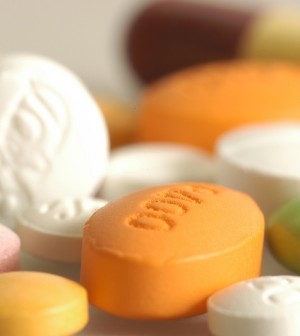- Could Your Grocery Store Meat Be Causing Recurring UTIs?
- Are You Making This Expensive Thermostat Error This Winter?
- Recognizing the Signs of Hypothyroidism
- 10 Strategies to Overcome Insomnia
- Could Artificial Sweeteners Be Aging the Brain Faster?
- Techniques for Soothing Your Nervous System
- Does the Water in Your House Smell Funny? Here’s Why
- Can a Daily Dose of Apple Cider Vinegar Actually Aid Weight Loss?
- 6 Health Beverages That Can Actually Spike Your Blood Sugar
- Treatment Options for Social Anxiety Disorder
Health Highlights: Aug. 20, 2014


Here are some of the latest health and medical news developments, compiled by the editors of HealthDay:
Peanut, Other Nut Butter Products Recalled by NSpired Natural Foods
Possible salmonella contamination has led NSpired Natural Foods to recall peanut butter, almond butter and other nut butter products.
The recalled products include Arrowhead Mills peanut butters, Maranatha almond butters and peanut butters, and nut butters sold under the Kroger, Safeway, Whole Foods and Trader Joes’ brands, CNN reported.
A complete list of the recalled products can be found on the U.S. Food and Drug Administration website. Consumers with these products should throw them away and contact NSpired Natural Foods for a replacement or refund.
The company issued the recall after routine testing showed a possible connection between the products and four cases of illness, CNN reported.
—–
Breast-Feeding Moms Have Lower Depression Risk: Study
Breast-feeding cuts new mothers’ risk of depression by half, a study says.
Researchers analyzed data from nearly 14,000 births in England and found that risk of post-partum depression was 50 percent lower among women who followed through on plans to breast-feed, BBC News reported.
However, the risk of depression more than doubled among women who planned to breast-feed, but were unable to do so, according to the study in the journal Maternal and Child Health.
“It is right to tell mothers it’s right to breast-feed, there’s so many benefits, but the thing we need to rethink is giving more support to those who did want to breast-feed and to recognize those who are unable to, are at substantially elevated risk and to make sure health visitors keep an eye on these women,” Dr. Maria Iacovou, one of the researchers, told BBC News.
Copyright © 2026 HealthDay. All rights reserved.










